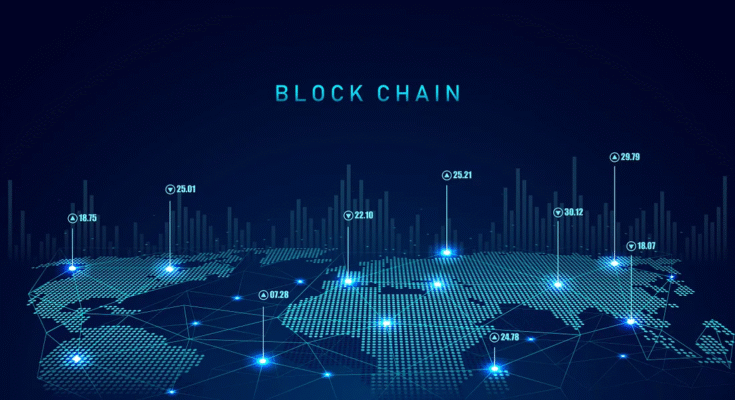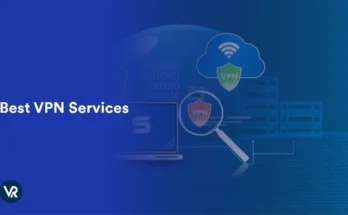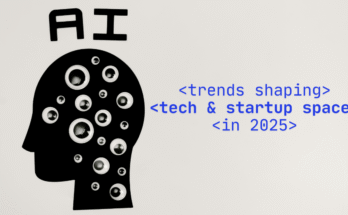Blockchain technology continues to evolve at an unprecedented pace. As we step into 2025, the need for secure, scalable, and efficient blockchain development platforms is higher than ever. Whether you’re a startup founder, an enterprise developer, or a blockchain enthusiast, choosing the right blockchain platform can define the success of your project.
In this detailed guide, we explore the top blockchain development platforms in 2025, highlight their features, and help you understand which one suits your needs. From smart contract platforms to enterprise blockchain networks, we cover the most searched and trusted options that developers are actively using this year.
Why Blockchain Platforms Matter in 2025
The world is shifting towards decentralized systems for everything—finance, identity management, supply chains, gaming, and even healthcare. Blockchain is no longer just about cryptocurrencies. It’s the foundation of a trustless, borderless digital future.
Here’s why choosing the right blockchain development framework in 2025 is critical:
- Scalability for millions of transactions
- Low fees and fast confirmation times
- Built-in support for smart contracts
- Enhanced security and decentralization
- Developer-friendly environments and documentation
Now, let’s dive into the best blockchain platforms for development in 2025.
1. Ethereum 2.0
Ethereum continues to lead the space in 2025 with its upgraded Ethereum 2.0 version. It has moved to Proof-of-Stake (PoS) and introduced shard chains, making it faster and more scalable.
Key Features:
- Smart contract support via Solidity
- Massive developer community
- Layer 2 scaling solutions like Optimism and Arbitrum
- DeFi and NFT dominance
Why Use Ethereum 2.0 in 2025:
If you want a proven, secure, and flexible platform for dApps, DeFi, DAOs, or NFT marketplaces, Ethereum remains the top blockchain platform in the game.
2. Solana
Solana is known for its ultra-fast throughput and extremely low fees. It’s one of the most popular blockchain development platforms in 2025 for real-time applications like decentralized exchanges and Web3 games.
Key Features:
- 65,000+ TPS (transactions per second)
- Rust and C-based smart contract support
- Extremely low latency
- Growing ecosystem of DeFi and NFT apps
Why Choose Solana:
If your application requires speed and scale, Solana is a leading choice, especially in the Web3 gaming and microtransaction space.
3. Polkadot
Polkadot enables multi-chain development, allowing blockchains to interoperate and scale together. It’s the perfect solution for cross-chain applications in 2025.
Key Features:
- Parachain architecture
- Secure interoperability between chains
- Built using Substrate framework
- Governed by on-chain voting
Why Polkadot Stands Out:
If you’re building applications that need to talk across different blockchains, Polkadot is your go-to. It’s ideal for enterprise blockchain solutions, cross-chain DeFi, and modular dApps.
4. Cardano
Cardano is a research-driven blockchain platform known for its security and scalability. Built by academics and engineers, it’s a top pick for enterprise and government blockchain use cases.
Key Features:
- Peer-reviewed development
- Proof-of-Stake (Ouroboros)
- Low energy consumption
- Plutus smart contract language
Why Developers Use Cardano:
If you’re looking for a sustainable blockchain platform with a strong academic foundation, Cardano is one of the most reliable blockchain platforms of 2025.
5. Avalanche
Avalanche is a high-performance platform known for its subnet architecture, allowing developers to create custom blockchains that suit specific needs.
Key Features:
- 4,500+ TPS
- EVM-compatible (Ethereum Virtual Machine)
- Supports multiple languages (Solidity, Rust, Go)
- Launch custom subnets
Why Choose Avalanche:
If you’re building a project that requires customization, speed, and interoperability, Avalanche is one of the most flexible blockchain platforms for developers in 2025.
6. Algorand
Algorand is built for speed and simplicity. It’s becoming the backbone for governments, CBDCs, and real-world business integrations in 2025.
Key Features:
- Finality in 4 seconds
- Extremely low fees
- Built-in smart contracts (TEAL)
- Eco-friendly PoS consensus
Why Algorand Is Rising:
If you want a green, efficient, and enterprise-ready blockchain platform, Algorand offers both speed and security.
7. BNB Chain (formerly Binance Smart Chain)
In 2025, BNB Chain remains a go-to for developers looking for fast deployment, low fees, and a massive user base.
Key Features:
- EVM compatible
- Fast block times (3 seconds)
- Massive global adoption
- Ideal for DeFi & GameFi apps
Why Pick BNB Chain:
For quick scalability and user acquisition, BNB Chain is hard to beat. Its infrastructure is built for high-volume applications.
8. NEAR Protocol
NEAR is a developer-friendly platform designed for mass adoption. It uses Nightshade sharding for scalability and offers Rust and JavaScript support.
Key Features:
- Simple onboarding with human-readable accounts
- Fast finality (1 second)
- Developer tools and grant programs
- Supports Web3 and mobile-first apps
Why NEAR in 2025:
NEAR is designed to onboard the next billion users to blockchain with easy interfaces and high-speed performance.
9. Tezos
Tezos is a self-upgradable blockchain platform, meaning it evolves without hard forks. It’s widely used in financial apps, NFTs, and DAOs.
Key Features:
- On-chain governance
- Formal verification for smart contracts
- Secure PoS mechanism
- Upgrades without disruptions
Why Developers Trust Tezos:
With its robust governance and focus on formal contract verification, Tezos is a favorite for developers in high-risk environments.
10. Flow Blockchain
Flow was created for NFTs and interactive experiences. Built by Dapper Labs (the creators of CryptoKitties and NBA Top Shot), Flow is made for consumer-scale applications.
Key Features:
- Designed for scalability without sharding
- Smart contracts in Cadence language
- Optimized for games, NFTs, and collectibles
Why Choose Flow:
If you’re building consumer-facing blockchain apps, especially in entertainment and digital assets, Flow is the best blockchain platform for you.
Key Criteria to Consider When Choosing a Blockchain Platform
With so many platforms available in 2025, how do you choose the right one? Consider the following:
✅ Scalability
Can the platform handle your app’s expected user base and transactions?
✅ Smart Contract Support
What programming languages are supported (Solidity, Rust, etc.)?
✅ Ecosystem and Community
Is there developer support, tooling, and funding?
✅ Security
Does the platform offer formal verification, strong consensus, and audit history?
✅ Speed and Fees
How fast are transactions, and what do they cost?
✅ Interoperability
Can your app interact with other blockchains easily?
✅ Sustainability
How energy-efficient is the platform? Is it eco-friendly?
Use Cases for Blockchain in 2025
Developers are using these platforms for a variety of applications:
- DeFi platforms (lending, staking, exchanges)
- NFT marketplaces
- DAO governance tools
- GameFi and play-to-earn games
- Supply chain tracking
- Digital identity solutions
- Healthcare data systems
- Decentralized cloud storage
The growth is exponential, and so is the opportunity.
Future Trends in Blockchain Platform Development
Here are some trends shaping the future of blockchain development in 2025:
🔹 Modular blockchains
Like Celestia and Cosmos, allow developers to choose layers and plug them together.
🔹 ZK-Rollups
For faster, private transactions—popular on Ethereum.
🔹 Cross-chain bridges
Essential for multi-blockchain apps.
🔹 Decentralized Identity (DID)
Blockchain will be used for personal data and digital passports.
🔹 CBDCs and Government Use
More countries are building on platforms like Algorand and Hedera.
Final Thoughts
Choosing the best blockchain development platform in 2025 depends on your project’s goals. Whether you’re focused on DeFi, NFTs, enterprise solutions, or Web3 gaming, there’s a platform built just for your needs.
Here’s a quick recap of the top blockchain platforms:
- Ethereum 2.0 – Most popular for DeFi and dApps
- Solana – Ultra-fast, great for games
- Polkadot – Interoperability king
- Cardano – Secure, scalable, academic
- Avalanche – Customizable and scalable
- Algorand – Fast and green
- BNB Chain – Mass adoption and low fees
- NEAR – Easy and developer-friendly
- Tezos – Upgradeable and secure
- Flow – NFT and consumer experiences
Take the time to test, build, and compare. 2025 is a golden year for blockchain developers—and the tools have never been more powerful.




